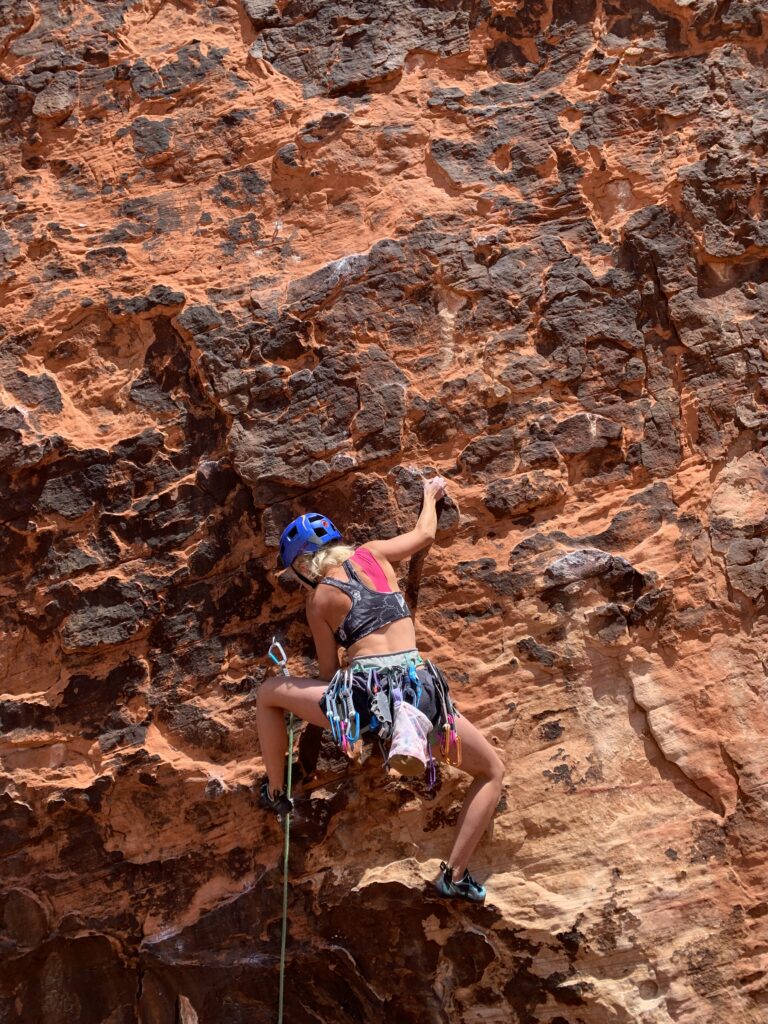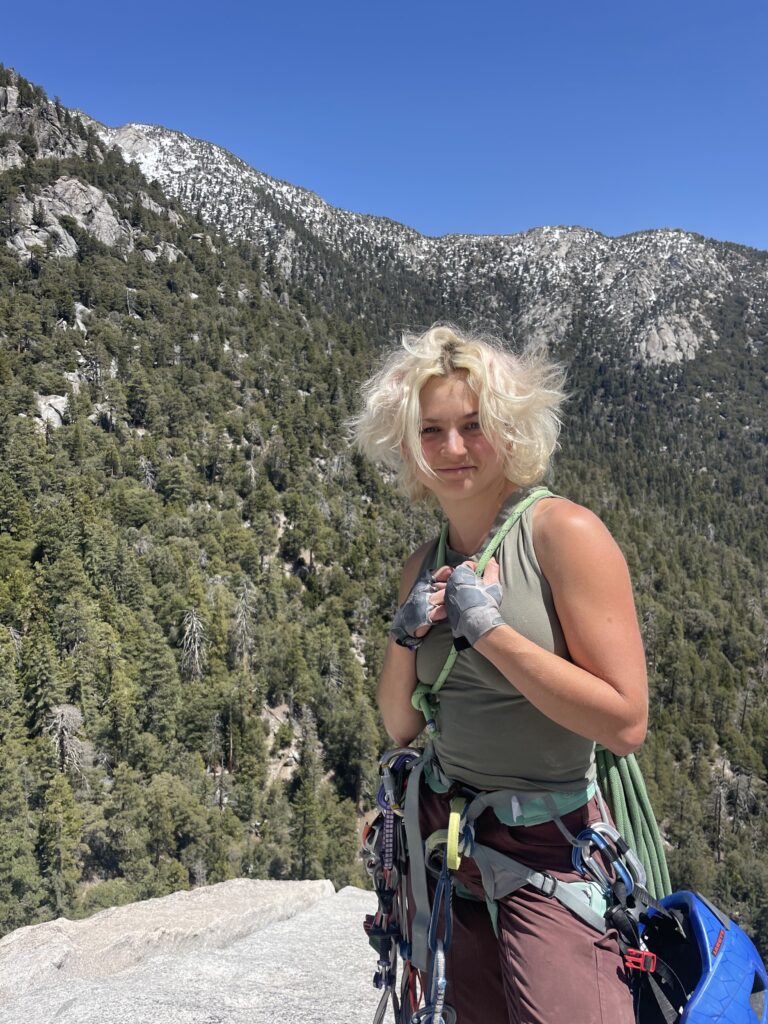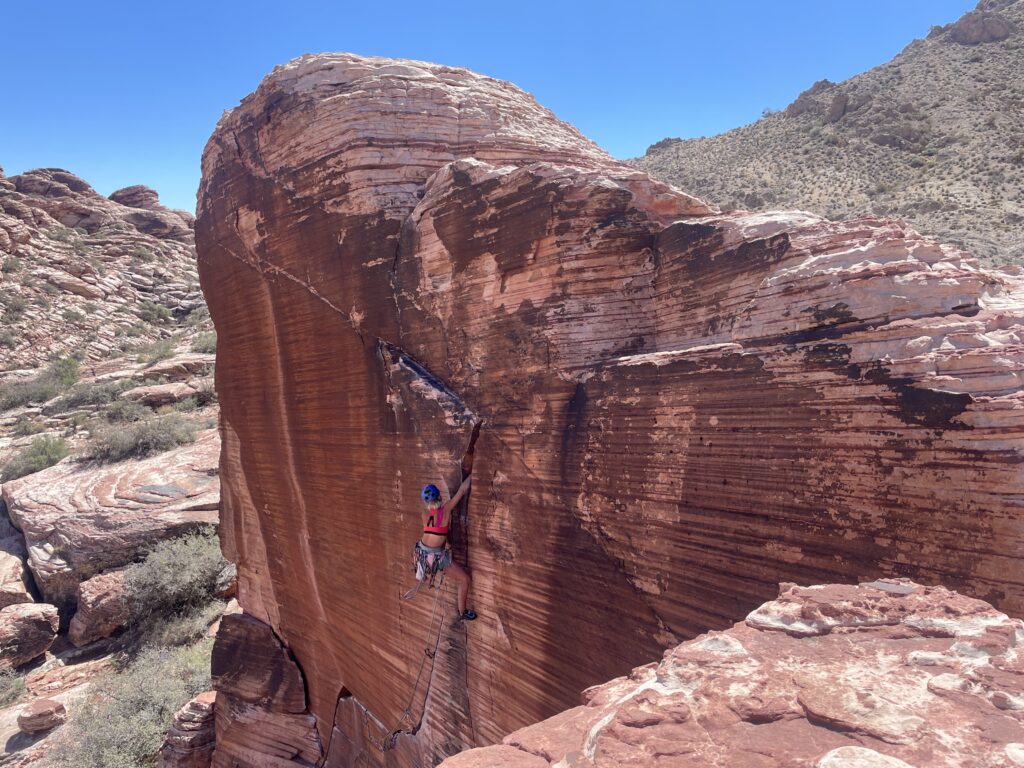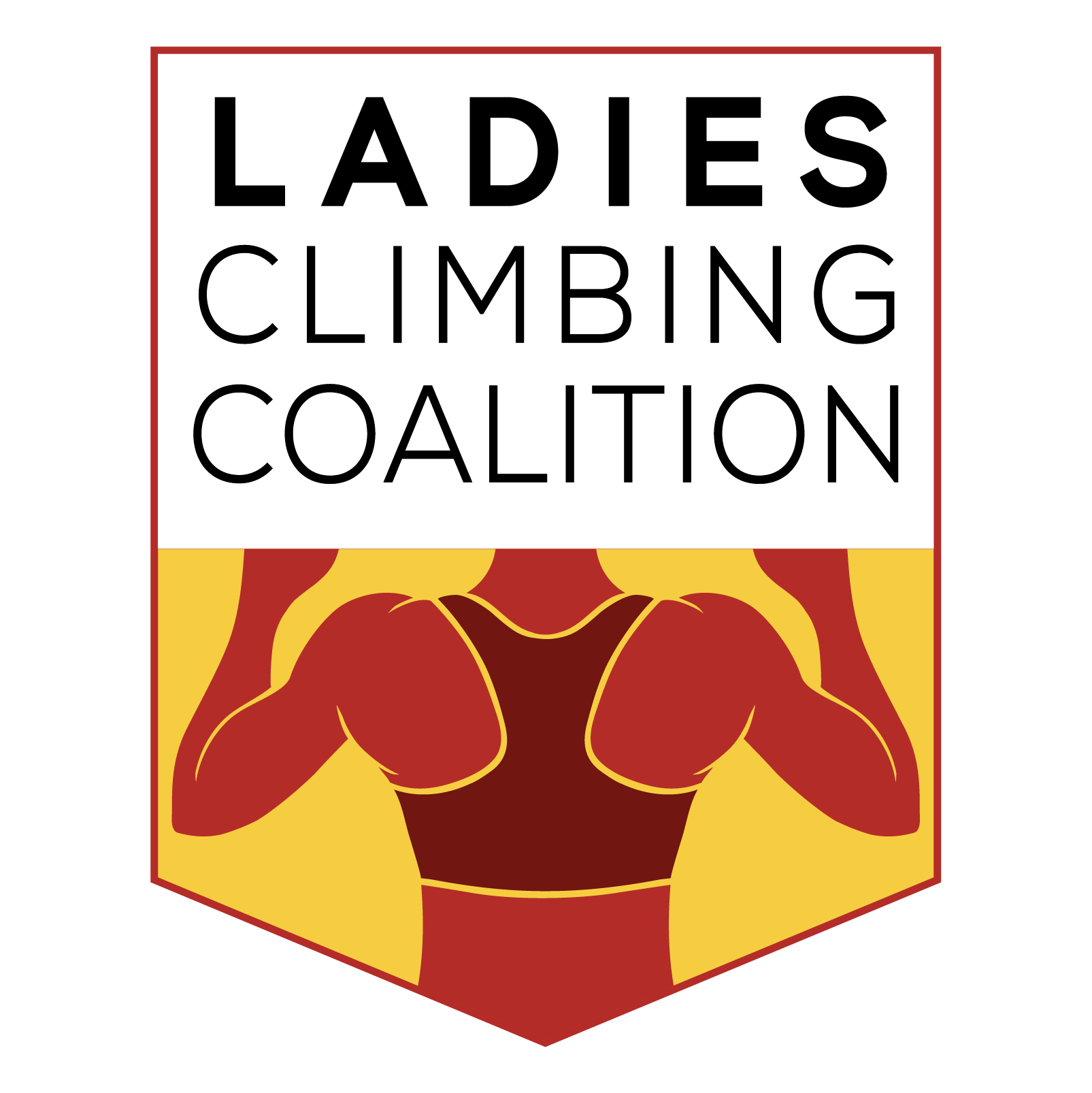26 Jun COMPLIMENTS AT THE CRAG
Written by Wren Cilimburg
“You must have started climbing as a little kid!” Greg exclaimed as I stepped my way up an easy slab. I was holding my Chacos in my hands so I couldn’t grab any holds, forcing myself to work on my footwork and balance. I laughed, shaking my head.
“Nope,” I said. I only have two years of climbing under my belt, a fact which often surprises people. I wasn’t great at climbing at first, and it didn’t feel like my thing. For a couple years during Covid I climbed very intermittently and was terrified when I attempted to lead anything. But when I got psyched on outdoor climbing a year and a half ago, I was suddenly all in. I started climbing outside every weekend, got comfortable taking falls, and learned to lead trad climbs.

I ran competitively in high school, and I’ve found that those years of learning to push myself mentally apply well to climbing. I know how to try hard. Within the past few months, it feels like that mental ability is paying off– and I’m not the only one that’s noticed.
There are thousands of better climbers than me. I’m nowhere near pro status. But in the amateur climbing communities that I occupy, I often receive compliments on my climbing.
And there’s a big theme I’ve noticed within these compliments: men tend to make value judgments, while women are much less likely to. Many men have told me something along the lines of “You’re a good climber”. I could count on one hand the number of women who have made a comment like this. And it’s not that women never say nice things– they do. But their comments are things like “nice job on that climb!” or “way to figure out that crux!”. These are specific things that just occurred, in contrast to the broad judgments that men often make.
Being informed I am a “good climber” by a random guy at the crag is frustrating, because I’m clearly being held to this individual’s arbitrary standards on what determines “good”. Plus, it upholds the idea that the goal of climbing is performance, which leads to many climbers having unhealthy relationships with the sport. Personally, I want to focus on fun and being outside more than I do performance, but my interactions with other climbers sometimes leads to me feeling pressure to continue to live up to these standards. To be clear, this is an internal issue that I need to work through– no one who compliments me incurs any kind of responsibility for my ego or identity. But I do think that climbing culture often encourages ties between peoples’ identities and their performance.

One weekend out climbing recently, a man informed me I was a good climber after I was lowered off an 11d. The same guy was silent when my friend Emily, who’s newer to outdoor climbing than me, made it to the top of a 10c. In reality, the climb I did was nothing special. Emily, on the other hand, has been working through a fear of falling, and I knew that her finishing a 10c was a much bigger accomplishment than me climbing another 5.11.
Compliments at the crag are often related to grades, and higher numbers become the goal. Challenging yourself and making progress within climbing can be rewarding, but complimenting based on numbers leads many people to be overly tied to grades. For me, this has sometimes resulted in frustration or self-doubt when the number isn’t what I expected.
I’m all for compliments and being nice, but I want to encourage the climbing community to think critically about how we do this. Changing the way we compliment people at the crag and gym can help to shift a culture from one that prioritizes climbing performance to one that values kindness, generosity, and safety. If you see someone make an impressive ascent, there are ways to congratulate them that don’t reduce them to their performance:
— Compliment attitude over performance: “I love how you laughed when you took that whip. It’s awesome to see people having fun on the wall!”
— Avoid value judgements and instead be specific: “It was cool to watch you figure out the beta there! That footwork was super creative.”
— Remove emphasis from the send: “It was awesome to see you get on something that challenged you. Way to try hard!”
— Compliment safety: “It was cool to watch the way you placed gear! It looks like you protected the crux really well.

Shifting towards comments like this might help climbers at large develop a healthier relationship with the sport. I know I’m not the only climber who’s felt pressure at the crag or a kick of jealousy when a friend sends and I don’t. Climbing can be an emotionally intense experience, and these feelings make sense. Personally, I’m trying to shift the focus to gratitude: having the time, money, and ability to be out climbing is such a gift. I’m doing my best to enjoy the movement, flow, and connection that it brings and not worry about the numbers.
